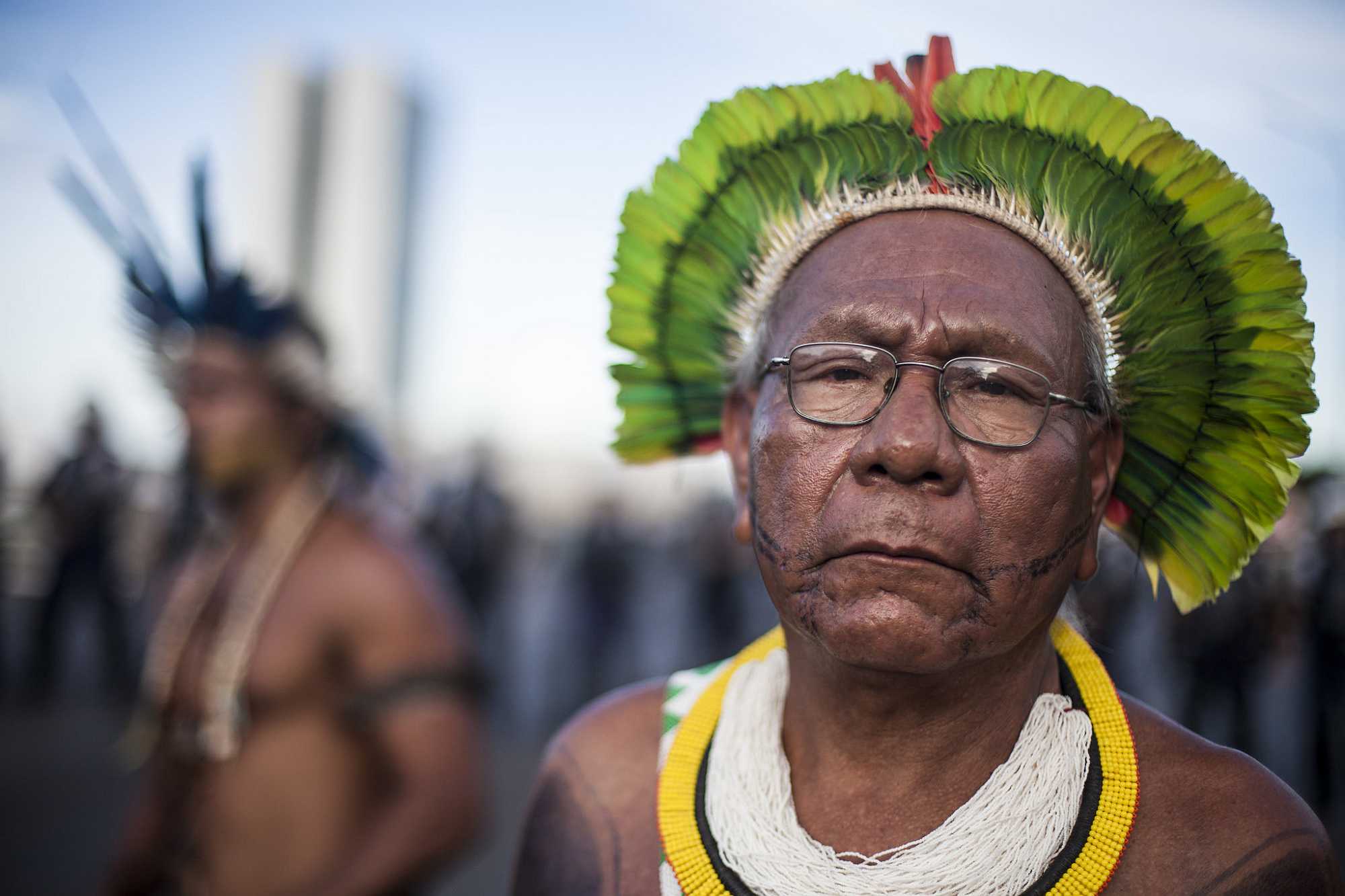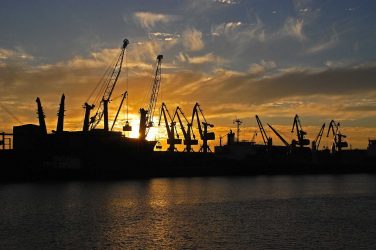With coronavirus infections steeply rising, Brazil is now the second placed country in the world with the highest number of cases, only lagging behind the US. Today, Brazil is Latin America’s virus hotspot, with cases exceeding 900,000 and with a death toll over 45,000 – by far the highest in all Latin America, is the world’s second-highest after only the US.
Brazil’s out of control pandemic, which will peak in the next couple of weeks, raises concerns for the safety of Brazilians; and for regional and international future security.
Since the beginning of the global pandemic, far-right President Jair Bolsonaro downplayed the threat posed by the virus, declaring it was “a minor cold” and stating that he was not concerned about contracting the virus because of his “athletic physique.” He accused his political foes and the press for “tricking citizens” about the threats posed by the coronavirus.
Amid an uncontrolled pandemic and within a month, Bolsonaro has presided over administrative chaos, sacking two health ministers over diverging views on social distancing measures, and endorsing the anti-malaria drug hydroxychloroquine for coronavirus patients. There is no assured medical evidence that this drug can prevent infections or heal coronavirus patients. The shoddy replacement and acting health minister Eduardo Pazuello is a former general with no medical training. It is he who is overseeing guidelines prescribing hydroxychloroquine for coronavirus patients with mild symptoms.
In many ways, Bolsonaro’s coronavirus response is similar to the one by his US far-right populist counterpart, Donald Trump. His ideological agenda, however, might prove to be even more devastating to Brazil’s democratic institutions and minority groups. By giving the global pandemic an ideological spin, the incumbent administration compromised Brazil’s response to the crisis, creating widespread political and institutional chaos. A point neglected in this tragedy is the matter of Brazil’s indigenous peoples during this crisis.
Indigenous Communities Under Threat
President Bolsonaro is well known for his ideological platform when dealing with Brazil’s indigenous communities. He declared from the beginning of his administration that he will “integrate” indigenous people, as he expressed concerns since they live in “isolated communities.”
Last year Bolsonaro stated by tweet that Brazil’s first peoples are “exploited” by international NGOs. In his words: “Fifteen percent of Brazil’s territory belong to indigenous communities and less than 1 million people live in isolated parts of Brazil, and truly, they are being exploited or manipulated by NGOs.”
Bolsonaro continues, declaring: “Anyone believes that a region as large as the Southeast is not large enough for them? Do we want to keep the indigenous people locked up in their reserves as if they were prehistoric men?’
Bolsonaro vows that he will not demarcate one single “inch” of Brazil’s vast Amazon territory to indigenous communities. Following this line of thought, Bolsonaro contends that we ought to “integrate” Indians, going on to state that “Indians want doctors, dentists, television and internet. We will allow means for them to be just like us.”
To complicate things further, Bolsonaro promises to “regulate” gold mining throughout the country, including those found in indigenous reserves. As he has declared: “It is my intention to regulate mining, I also intend to regulate mining to the indigenous people. They should have the right to explore the soil in their own property.”
Since then, Brazil’s indigenous reserves of gold are increasingly under threat. For instance, last year the Waiapi tribe in Amapá state was invaded by gold miners. An indigenous man called Emyra Waiapi was reported dead and Brazil’s Federal Policy are investigating the case. Bolsonaro argues that “there is no strong evidence” that he was murdered.
This might be wishful thinking given the instances of violence that have been reported by Brazil’s National Indian Foundation (FUNAI). In one case, the organization reported that 15 men heavily armed have invaded the indigenous reserves.
In April this year, FUNAI changed the agency’s guidelines on indigenous peoples land demarcations, making demarcations increasingly difficult to implement. It is contended that these new guidelines subvert the foundation’s aims and principles, which serve the purpose of protecting Brazil’s indigenous people’s interests and rights.
Last year, Bolsonaro appointed as FUNAI’s new director Marcelo Xavier da Silva, who holds close ties with Brazil’s agribusiness, sparking an international outcry from human rights activists worldwide. The coronavirus crisis could not have come at a better time.
Indigenous Peoples During the Pandemic
With confirmed cases within Brazil’s indigenous peoples, there are growing concerns they could be completely wiped out as they lack flu virus immunity. Reports are alarming: there are over 446 cases and 92 deaths among indigenous communities in the Amazon region, with numbers steadily rising. Since the outbreak, the incumbent administration restricted access to Brazil’s indigenous reserves, but as testing is restricted, cases and real numbers of deaths remain underreported.
Arguably, failure to control illegal logging in protected and non-protected areas increased the vulnerability of indigenous peoples to coronavirus infections. According to the Demographic and Infrastructure Vulnerability Analysis of Covid-19 Indigenous Lands study, indigenous lands with titles not officially demarcated create uncertainty, and increase logging, mining and other illegal activities; exposing indigenous communities to a higher risk of contamination.
Another concern is the state of Amazonia’s lack of infrastructure, which has now over 56,000 coronavirus cases. The death toll in the state’s city of Manaus is so high that coffins are being stacked on top of each other in trenches at the city’s cemetery; the supply of coffins in the city is running out.
Brazil’s national funeral home association has asked for coffins to be airlifted from São Paulo to Manaus since there is no road access. The state’s public health is collapsing, with 90 percent of intensive care beds in use. The mayor of Manaus, Arthur Virgilio Neto, from the Brazilian Social Democracy Party, has stated that “the worst is yet to come.”
The contempt shown by Bolsonaro and his circle towards the indigenous population can be gathered by a recent ministerial meeting video, released to the Brazilian press after a high court decision by judge Celso de Mello. Former Justice Minister Sergio Moro cited the video as one of the proofs of president Bolsonaro’s alleged meddling with Brazil’s federal police.
In this footage, the president and some of his ministers are found casting aspersions against Brazil’s indigenous peoples. Bolsonaro takes particular issue with the country’s archeological sites, stating: “A container terminal in Paraná doesn’t get off the ground because it now needs a FUNAI report as well. The guy goes there, if he finds – since it is fashionable – a petrified Indian’s shit, it’s over. You can’t do anything there. You have to end this in Brazil. You have to integrate the Indian in society and look for the project for our country.”
Infamously, Minister of Environment Ricardo Salles suggested that the government needs to take advantage of the pandemic, “since the international press is focused in the coronavirus, to pass all the legislation simplifying environmental regulations.” Then Minister of Education Abraham Weintraub was no less callous, stating how he detests “the term indigenous peoples.” He goes on to emphasise how there is only one people in this country (…) it is Brazilian people (…) let’s end this business of minority people’s privileges.”
Crisis breeds sinister opportunities. Is the coronavirus crisis just such a case? Bolsonaro increasingly uses the pandemic as an opportunity to advance his ideological platform when dealing with Brazil’s first peoples. Brazil’s indigenous communities, and their right of self-determination, are hanging by a thread with Bolsonaro’s Orwellian newspeak and ruthless ideological crusade advancing – a political trend showing no signs of retreat in the foreseeable future.
Flavia Bellieni Zimmermann is a Brazilian born International Relations Analyst, having published extensively in the field of Brazilian Politics and Society. She is a Teaching Fellow and a Doctoral Candidate at the University of Western Australia School of Social Science, Political Science and International Relations. Flavia is the Department Representative and the Seminar Series Coordinator for Political Science and International Relations at the University of Western Australia.
She holds a Graduate Diploma of International Relations and Security Studies from Curtin University in Western Australia, and a Bachelor of Laws with first-class honours from the Pontifical Catholic University from Rio de Janeiro (PUC-RJ), Brazil. Flavia is associated with the University of Western Australia Centre for Muslim States and Societies.
Besides, she is a Commissioning Editor for the Australian Institute of International Affairs blog The Australian Outlook, regularly contributing with commentaries and social media engagements. She is the founding Oceania Chair for the International Association for Political Science Students (IAPSS), and her research interests include Latin America, Brazilian Politics and Society; Women in the Global South; Gender and Politics; Gender Mainstreaming; Comparative Studies; Human Rights; Migration, Religion and Gender; Populism and Gender.










